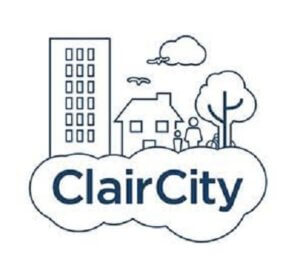 Citizens across the Bristol region are being invited to give their views on the future of work, travel, and leisure in their city.
Citizens across the Bristol region are being invited to give their views on the future of work, travel, and leisure in their city.
Researchers from the ClairCity project (Citizen-led Air Pollution Reduction in Cities) at the University of the West of England, Bristol (UWE Bristol) are working with Bristol City Council to find out what citizens want from their future city. By working together, it’s hoped the joint community approach will help to tackle the causes of air pollution.
It’s a serious problem as Bristol regularly fails to meet standards for the toxic pollutant nitrogen dioxide. The European Environment Agency calculated in 2015 that over 37,800 deaths per year across the UK were attributable to air pollution by causing or aggravating conditions such as heart attacks, cancer, asthma, and stroke. The most vulnerable in our society are also the most affected, with children and elderly people suffering disproportionately through breathing polluted air.
The causes are mainly due to how we get about – a problem familiar to commuters stuck in Bristol’s traffic jams. Couple that with limited public transport options and environmentally unfriendly fuels like diesel and the air we breathe becomes a toxic soup.
Dr Enda Hayes, Technical Director of ClairCity and Associate Professor in Air Quality and Carbon Management at UWE Bristol, explains that the project will help the authorities to solve some of the roots of the air pollution problem. “We know that people can make a difference by reducing the amount of pollution they produce in their daily lives, but much of the time it’s not fair to blame individuals. We need a transport system, housing policy, community initiatives, council and government action to allow us to live in the ways that we want to or need to, but without causing toxic harm to ourselves and our families.”
ClairCity is working on two solutions to the issue. Firstly, the project aims to involve as many citizens as possible in an online survey, launched this week, so that the researchers understand what residents of Bristol, South Gloucestershire and the surrounding areas want for their future to make sure that action on reducing air pollution creates a better region for all citizens. The researchers are also attending events across Bristol during May and June to collect opinions on future daily life in the city.
Secondly, building on this research, the project is also developing complex new modelling so that local authorities have better data to monitor and predict poor air quality, allowing solutions to air pollution to be targeted and successful.
Throughout 2017-18, the ClairCity project will also release an online game, workshops, a school competition and a smartphone app to continue involving as many citizens as possible. The project coordinators understand that no solution can work if it doesn’t have support from local people, and those who know the city and region best are its own residents.
Dr Hayes says: “Air pollution hurts all of us, but it is connected to how we live, work and move around the city, so we can’t tackle it in isolation. The important thing is to plan for a city that we want to live in, that suits residents and that makes sure we get the best quality of life possible for all residents.”
ClairCity citizen activities start in the Bristol region in May.

